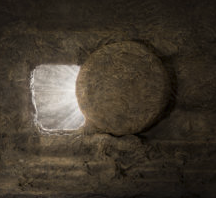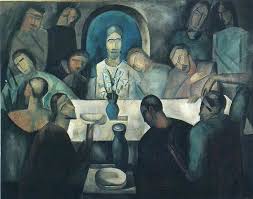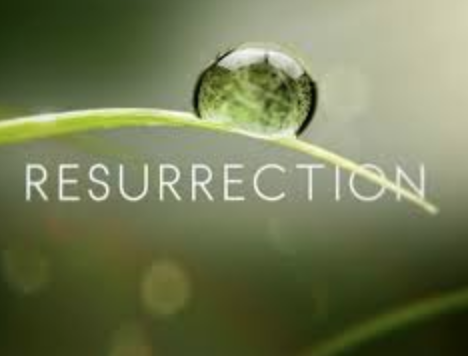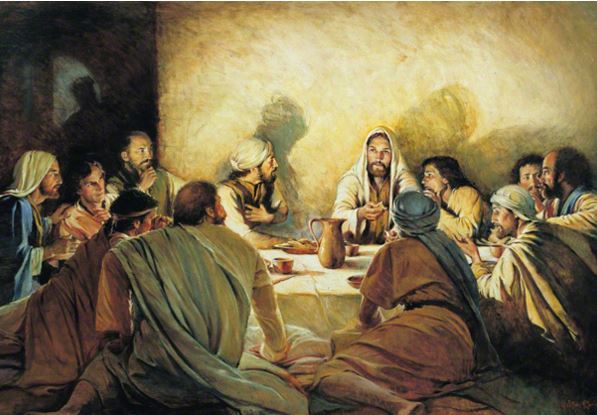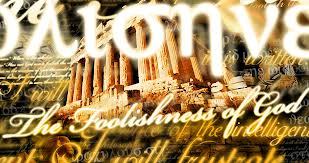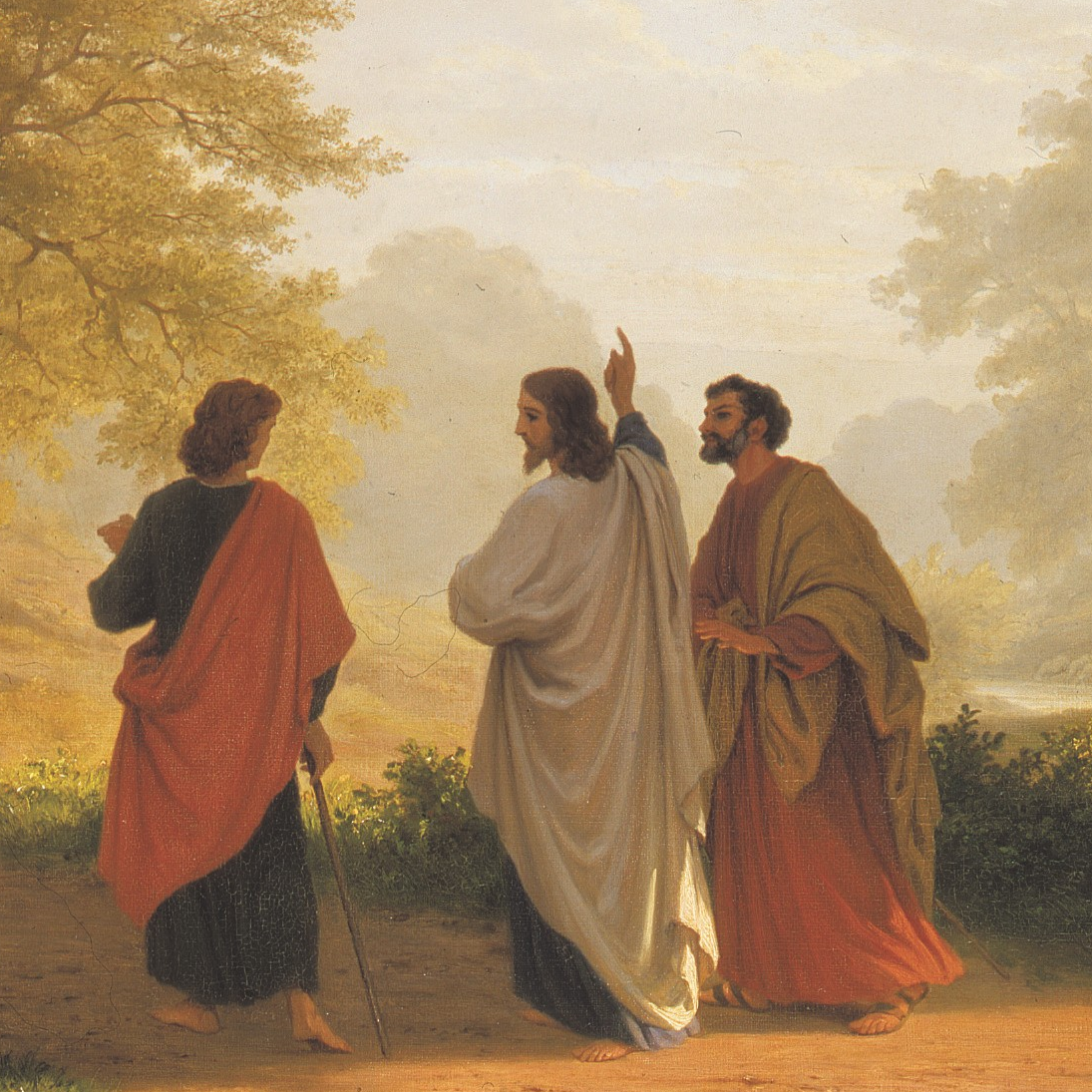The sacred myth tells us that Jesus rose from death after three days - what transformation happened in that tomb? Jim Burklo connects the story with our gestation of fear into faith, victimhood into victory, harmful theology into healthy spirituality.
Have you ever wondered what Jesus did to deserve being tortured and crucified to death? How could someone so good be treated so inhumanely?
Every Sunday I stand at the altar and preside over a mystery. A mystery that has its roots in the events we remember this Holy Thursday. On Maundy Thursday, we gather together to contemplate MYSTERY. We know what will happen tomorrow as Good Friday plunges us into darkness. So is it any wonder that we cannot fully comprehend this MYSTERY.
You may have sung this morning’s hymns and heard the gospel reading and wondered “Is this make-believe?” Perhaps you’ve never entered this church before, let alone attended on an Easter morning. You’re home for the weekend with your family or boyfriend or girlfriend or you’re here alone. Are you’re sitting here struggling over some of the details of the resurrection story that leave you perplexed, cynical or simply scratching your head. These are claims made by the apostle Paul and others who struggle to convey an experience of possibilities that cannot be fully expressed in words.
So here, let me honour Mary the Apostle to the Apostles with this my imaginary account of Mary’s story. Remember the power of our imaginations to breathe life into what appears to all the world to be dead.
This Sunday worship services will begin with the proclamation that: Christ is Risen! Christ is risen indeed. Alleluia! Let me follow that proclamation up with a good Lutheran question:“What does this mean?” What does it mean that Christ is risen? What does resurrection mean? The truth is that there are about as many different explanations of Christ’s resurrection as there are Christians. And that’s a good thing, because the question of the resurrection is a question that lies at the very heart of Christianity. So, is it any wonder that Christians have been struggling to come to terms with resurrection since the very first rumours that Christ had risen began to circulate. Over the centuries the various responses to the question of resurrection have divided Christians as various camps work out various responses.
Mary Magdalene was the first person, male or female, to witness the empty tomb…the first to see angels who reported the resurrection…the
In the wake of a week that saw sarin gas released once again on the people of Sryria, followed by the firing
Holy Week marks a sharp uptick in visitors to this blog. In comments, messages, and emails I hear from fellow preachers who, like me, are daunted by the task of preparing the Good Friday sermon. That task is even more daunting for those of us who serve progressive communities. My fellow progressive-christian-preachers tell me of the dearth of progressive-christian Good Friday sermons to be found on the internet and encourage me to re-post my own attempts to rise to the occasion. So, here are the links to some of the Good Friday sermons I have preached over the years of my journey with the progressive community that I serve.
The important question for most biblical scholars is not whether the Ascension actually happened but rather, what did the Ascension mean to the author in his context. And to that question we might add a more pressing question: Given what the Ascension meant in the first century, does it continue to have any relevance for those of us who live in the 21st century?
“Mindfulness is "paying attention in a particular way: on purpose, in the present moment, and non-judgmentally." ... It could have been at the mouth of one of the shallow caves carved by Nature out of the limestone cliffs of Mount Quarantania, facing Jericho on the Jordan River and the Dead Sea to the southeast, that Jesus sat to gaze at forty dawns in the wilderness before he began his ministry. This 40-day season of Lent invites us to join Jesus in practicing mindfulness as he did in the desert.
Holy Week marks a sharp uptick in visitors to this blog. From comments, messages, and emails I hear from fellow preachers who, like me, are daunted by the task of preparing the Good Friday sermon. That task is even more daunting for those of us who serve progressive communities. My fellow progressive-christian-preachers tell me of the dearth of progressive-christian Good Friday sermons to be found on the internet and encourage me to re-post my own attempts to rise to the occasion. So, here are the links to some of the Good Friday sermons I have preached over the years of my journey with the progressive community which I serve.
I was asked by a colleague, “So, if you do not believe that Jesus died for your sins, then why bother celebrating the events of Holy Week?” Behind this question lies the assumption that the only way to understand Jesus’ death is to frame it within the context of the theology of “penal sacrificial atonement” ie “we are judged to be sinful creatures, punishment is required, God sends Jesus to pay the price for our sin”. That Anslem’s theory of sacrificial atonement was formulated in the 11th century and continues to hold sway in the minds of so many followers of Christ is a testament to the power of our liturgies and hymns to form our theology. However, Anslem’s theory is not they only faithful way to understand Jesus’ death.
These parables of the lost and found are outrageous. None of us would get very fare in life if we lived by these teachings. It is better to put the welfare of the many above the needs of one. It is pointless to cry over spilt milk. Sometimes its better to cut your losses and move on. The best accountants learn quickly to write off losses that would be too time consuming and costly to recoup. Children need to learn that they can’t always get what they want; that there are consequences to their actions, that dues must be paid, that we need to ask for forgiveness and make amends for our crimes, that rules need to be followed, and laws cannot be broken. That doing the right thing will be rewarded. And yet along comes Jesus, spouting such foolishness that even we who are predisposed to agree with him, even we can sympathize with the self-righteous and wonder how anyone could be expected to live like this.
a sermon for Easter 3A – Luke 24:13-35
We must treat the earth with the same kind of compassion that you would want from creation; the same kind of compassion you would want from the divine. As we travel this road to Emmaus, it becomes less and less important for us to believe in a certain way and vital that we behave with compassion. God is not dead. God is alive and well. God walks with us on the road. God is our companion on the road.
Jesus says, “Let not your hearts be troubled.” He is not telling them to not be sad, but rather, to not be frustrated and fearful. Jesus himself struggled with this according to John’s account. Three times John says Jesus was troubled: at the death of Lazarus, when he contemplated his own death, and when he realized that his own disciples would betray and desert him in his final hour.
This is a kind of reverse reversal story. Much of Luke’s Gospel is about Jesus’ journey to Jerusalem, but these two disciples, possibly
Jesus wants his disciples to know that their betrayal, their breach of covenant loyalty, did not dissolve the covenant, did not result in their rejection. They are loved and accepted. This is where we all have to start or, perhaps, come back to – that we are accepted in spite of all our failures and betrayals, that we are accepted even though we do not deserve to be accepted. But to claim acceptance for ourselves means that we have to claim acceptance for everyone else. God’s gift of peace is not just for our group, it’s for the cosmos, and we who have heard that word and accepted it, are called by God to spread that word
The power of life that raised Jesus is accessible and available to all people, even those who have not heard of Jesus. The risen Christ, the cosmic Christ who is Lord of all can take many forms and answer to many names. Our text says that God shows no partiality, that anyone who fears God, and that does not mean to be afraid of God, but anyone who respects and honors God, and anyone who does what is right, anyone who does what is just and good and compassionate shares in the life of the risen Christ.
Sermon given by Reverend Leah Robberts-Mosser at Community United Church of Christ (UCC) in Champaign, IL on May 16, 2010 about being a Progressive Christianity congregation. Part of the "We are an Easter People, Celebrating our Core Values" sermon series.
Nonviolence requires training. It requires the humility to take correction from someone you can trust to see your shadow better than you do. It also requires you to forgive yourself when you give in to the violence crouching at the door, and keep at it. Don’t give up on nonviolence.

